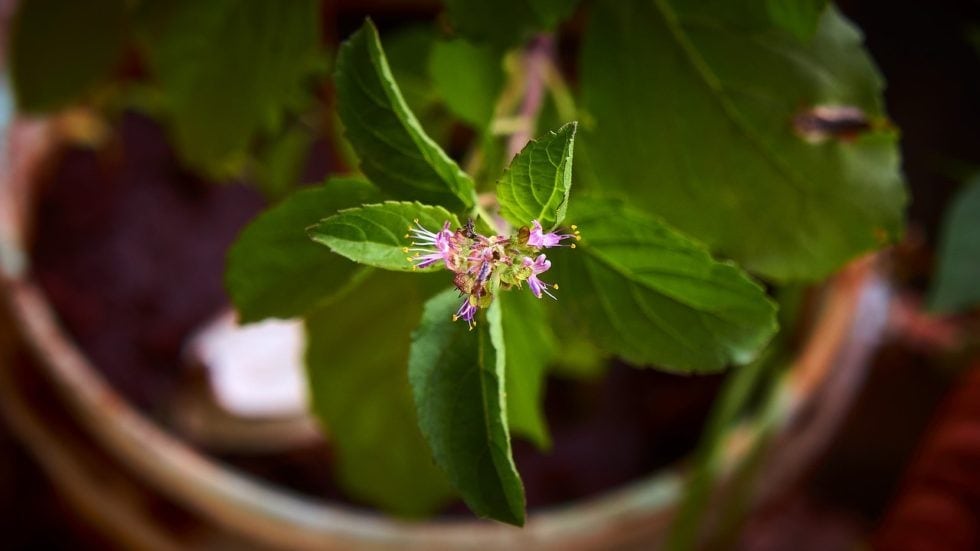
Benefits of Tulsi and Other Fresh Herbs to Know About if you have Mast Cell Activation Syndrome or Histamine Intolerance
I’m always looking for natural options to support my own Mast Cell Activation Syndrome and Histamine Intolerance. And Tulsi has been a mainstay of mine!
Tulsi (also called Holy Basil) is an important herb in the traditional medicine of India, called Ayurveda.
It’s actually known as the “Queen of Herbs” in Ayurvedic Medicine.
Tulsi is what is called an “adaptogenic” herb. This means it can help your body adapt to stressors.
These “stressors” can be a number of things. Like physical stressors, like an injury. Or also metabolic stressors, like high blood sugar.
Another type of stressor is psychological, like job stresses or family stresses. These stressors can also be toxins, like too many chemical or mold toxins in the body.
Mast cell over-activation and high histamine are types of stressors on the body, too. But the good news is herbs like Tulsi can help with both.
I started growing Tulsi years ago in my garden. I remember starting a few seeds indoors. Then carefully transplanting them to the garden.
Little did I know that Tulsi would really take off! It came back year after year with no effort at all. It’s super easy to grow. Just watch out! It spreads quickly to the rest of your garden beds. And even into the yard.
I would make tea all summer long with that wonderful, fresh Tulsi. It was just incredible. Then I would dry it and have Tulsi tea all winter too.
But Mast Cell 360 keeps me pretty busy. So, I haven’t really had time to garden and harvest herbs lately.
So, I started drinking different packaged Tulsi teas. And they seemed ok. But they were nothing like the fresh Tulsi from my garden.
And there was one big difference I noticed. The dried Tulsi just didn’t have the same effects for my mast cells and histamine levels.
This was a real bummer! I was missing the mast cell and histamine benefits from my fresh tea. And wondering if drinking store-bought Tulsi tea was truly worth it.
Until I found a really special Tulsi tea that has made a huge difference for me.
This special Tulsi actually tastes fresher than what I dried from my own garden. I couldn’t believe that! But it’s probably because of the amazing soil this Tulsi is grown in.
I want to tell you all about it.
But first, let’s learn more about what Tulsi is. And how Tulsi can support mast cells and histamine levels.
What to know about Tulsi (Holy Basil) if you have Mast Cell Activation Syndrome or Histamine Intolerance
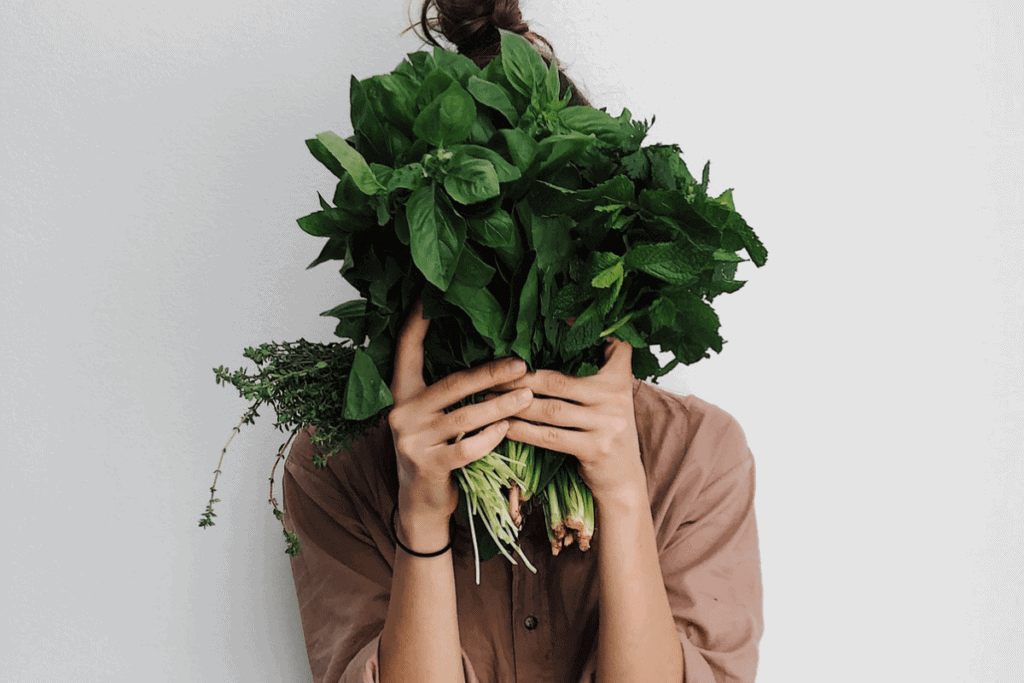
Tulsi (“Holy Basil”) is a great herb for lowering the body’s stress response.
Again, stresses on the body can be physical, chemical, metabolic, or psychological. It’s anything that throws the body out of its natural, balanced state.
Tulsi has traditionally been used to promote a long and healthy life.
Ayurvedic practitioners have historically recommended Tulsi to support the health of the body:
- Respiratory support
- Digestive support
- Modulating pain
- Swelling modulation
- Heart and blood vessels
- Skin support
- Eyes support
- Detox support… and more.
There are a number of different strains of Tulsi. Because they all have slightly different effects, it’s best to use a combination of strains.
The four different strains of Tulsi most often mentioned in Ayurvedic texts include:
- Vana (wild, white leaf)
- Kapoor/Temperate (heavily flowered)
- Rama (green leaf)
- Krishna (purple leaf)
Vana (wild leaf) is a white-colored Tulsi. It’s known to contain high levels of eugenol. This is a beneficial compound that can fight bacteria and molds.
Kapoor (heavy flowered) is especially known for its ability to fight bacteria and to keep insects away. Studies also show this variety is high in antioxidants – higher than the herb Moringa.
Rama (green leaf) is more fragrant than the other varieties of Tulsi. It has been used for respiratory support. The juice of Rama Tulsi leaves has been seen to support the immune system in colds, fevers, and bronchitis.
Krishna (purple leaf) is the strain that’s highest in polyphenols. This means it has the most antioxidants. It’s known to be beneficial for ear, nose, and throat conditions as well as skin diseases.
Next, let’s look at how you can use Tulsi.
Ways to use Tulsi for those with Mast Cell Activation Syndrome or Histamine Intolerance
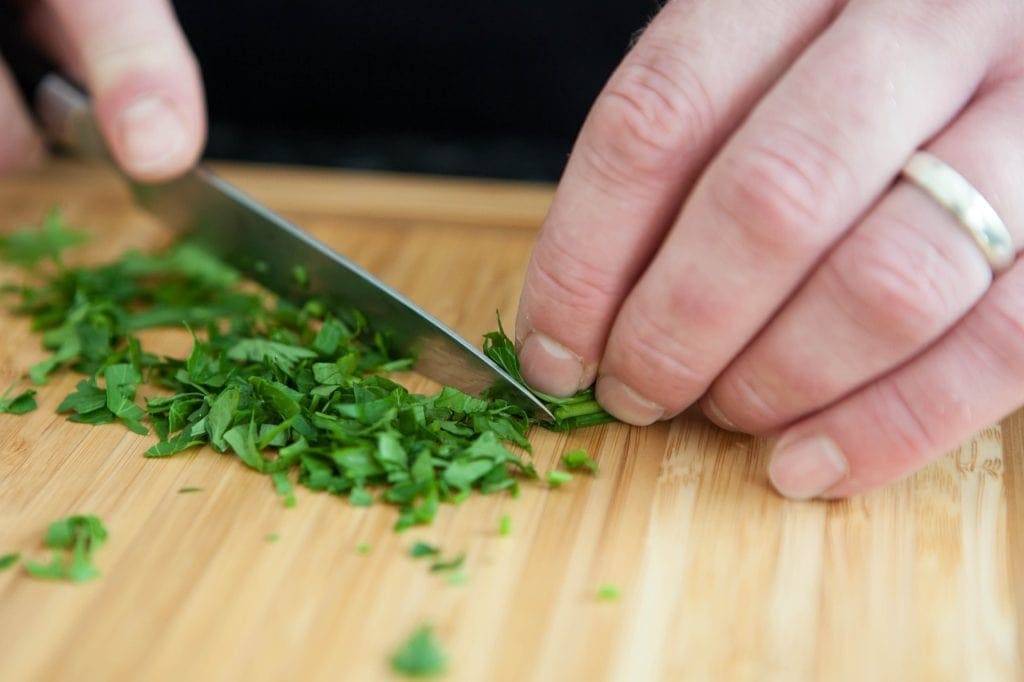
There are a few different ways you can use Tulsi.
- Cooking
- Tea
- Hydrosol
- Tincture
Let’s look at each of these, one by one.
Cooking
Tulsi is also called Holy Basil or Thai basil. This is the type of basil used in Thai or Vietnamese cooking.
Tulsi is part of the classic flavor in Thai and Vietnamese cooking.
Tea
Tea is a really popular way to enjoy Tulsi. I share the best one I’ve ever found with you below – it’s so fresh and great.
A Tulsi tea may have one strain or be a blend of the Tulsi varieties mentioned above. It is sometimes also combined with other herbs. Like peppermint, ginger, or tarragon.
Tulsi tea is usually steeped for 5-10 minutes to get the most benefit from the herb.
Hydrosol
A hydrosol is another way to use Tulsi. Have you ever used a hydrosol?
Also, I have a great one listed above.
A hydrosol is made when an herb is distilled. This means the essential oils and water of the plant are extracted and dissolved into water.
This herbal spray can be used topically. I like to spray it on my face when I need to relax. It’s very soothing!
The hydrosol can also be sprayed into your mouth. (Of course, as long as you tolerate Tulsi). This can support the mast cells in the mouth. And for some people may help soothe irritations.
I’ve also sprayed it in my mouth as a natural sugar-free breath freshener.
Another way to use it is to spray it in the air. It smells really good!
Tincture
Finally, you can use Tulsi as a tincture, This can be either an alcohol-based extract or a water-based extract.
If you have an alcohol-based tincture, it’s important to know the source of the alcohol. If the alcohol is derived from allergens (corn, for example), it could cause reactions.
A Tulsi tincture is easy to use. You can just place a few drops on your tongue or in a glass of water.
You can even put a few drops of a tincture on your skin. Then it will be quickly absorbed into the bloodstream.
Now, before you buy Tulsi…let’s talk about some important notes on sourcing Tulsi and other herbs for tea, hydrosols, or tinctures.
Importance of Using Fresh Herbs and the Difference that Fresh Herbs make for Mast Cell Activation Syndrome and Histamine Intolerance
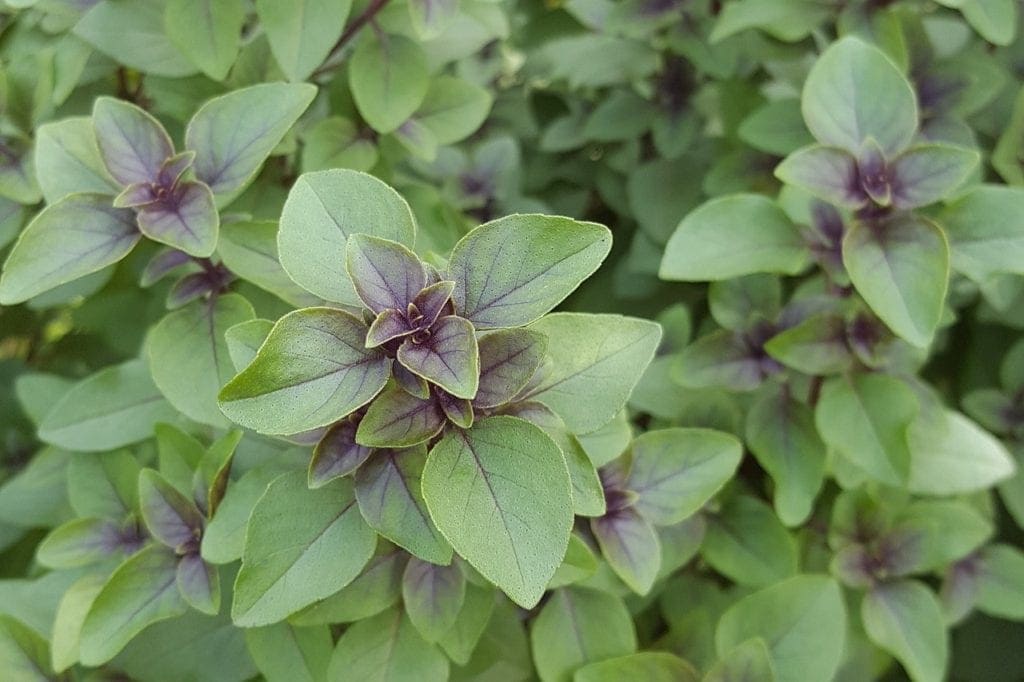
Using fresh herbs is really important for those of us with Mast Cell Activation Syndrome or Histamine Intolerance.
Why is this?
Because most herbal teas are already 6 months to over a year old by the time they make it to the grocery!
By this point, a lot of time has passed while the herbs were:
- picked
- dried
- packaged
- shipped
- unpacked
- put on the shelf
This makes the herbs older. And raises the histamine levels.
Dried herbs are also highly susceptible to mold.
By the time you buy the herb as a supplement or tea and actually use it – it could be quite moldy.
It’s a histamine disaster waiting to happen.
Another thing to consider is that you lose healing properties the longer the tea sits.
All plants have natural essential oils. And these oils have most of the health properties.
But these natural essential oils evaporate over time. This is why a dried herb can’t even compare to a fresh herb right out of the garden.
Because many of the therapeutic properties of the herb disappear over time as the healing essential oils evaporate.
So what should you do? I want to tell you about the absolute BEST place I’ve found for Tulsi teas, hydrosols, and tinctures.
This is Kauai Farmacy. I’m really jazzed up about it!
Let’s look at what makes Kauai Farmacy different from other companies.
Kauai Farmacy Difference for Herbs for people with Mast Cell Activation Syndrome or Histamine Intolerance
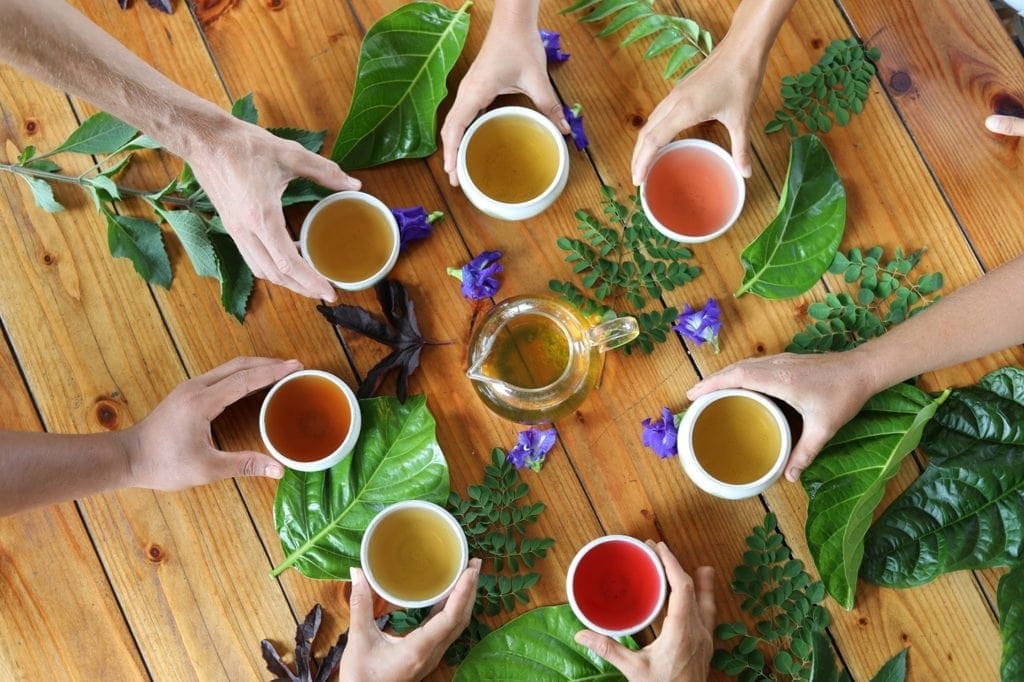
I learned about Kauai Farmacy a couple months ago. And I was really impressed with how they were growing and harvesting their herbs.
I couldn’t wait to tell you about them! Here’s why…
Kauai Farmacy goes above and beyond in the way they grow and process herbs.
Just like good health begins with the terrain of the gut, good herbs begin with healthy soil.
Kauai Farmacy grows its herbs in the pristine, mineral-rich, volcanic soil of Hawaii.
The soil is replenished with high quality organic material and minerals. This all makes the herbs taste much brighter.
And even dried, they taste more alive. Because of the incredible soil.
When the herbs are ready to harvest, they aren’t harvested by machine.
They are hand-picked. They are then cured slowly right on the farm.
Then, processing is done frequently, in small batches, so that the herbs are always the freshest possible.
Everything is packaged within weeks of picking the fresh herbs.
Kauai Farmacy doesn’t sell to retail stores anymore. Because they found that their products were often purchased 6-12 months after harvest.
This is too long! It means all those good health compounds are lost.
At Kauai Farmacy, they want to be certain their tea doesn’t get old and lose its healing properties.
For that reason, they only sell and ship directly to the consumer (you!).
All the careful hard work they do makes a huge difference in the quality of the herbs.
From choosing just the right growing spot with some of the best soil in the world, to hand-picking and careful processing. All to make the herbs amazing.
You can find Kauai Farmacy Tulsi Tea
(and other great products here:)
======> Get Very Fresh Tulsi Tea Here
And get 15% off with code Mastcell360
I picked out their best products for us with Mast Cell Activation Syndrome and Histamine Intolerance. Let’s go through these next.
Kauai Farmacy Herbal Products Safe for People with Mast Cell Activation Syndrome or Histamine Intolerance
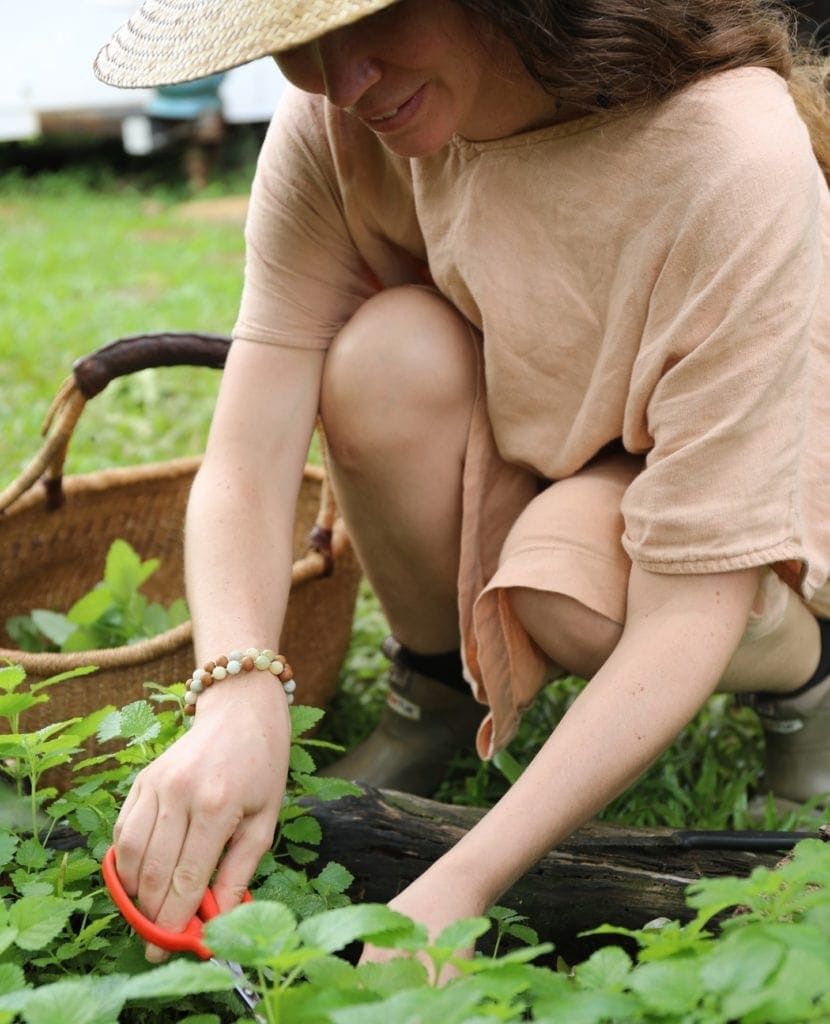
I went through every one of the Kauai Farmacy Herbal Products. And I picked out the ones that are likely to be the most beneficial to people with Mast Cell Activation Syndrome or Histamine Intolerance include.
I also looked for ones that would likely be best tolerated.
Let’s start with the Tulsi options.
Tulsi Options
- Tulsi Tea Blend
- Tulsi Mint Tea
- Tulsi Hydrosol
Kauai Farmacy’s Tulsi Tea Blend is an easy and excellent way to get the benefits of Tulsi into your diet. Uses include:
- General well-being
- Mental clarity
- Soothing digestions
- Promoting circulation
- Respiratory health (congestion, coughs)
The Tulsi Mint tea adds a couple more herbs that can help with histamine (mint and tarragon). And these can help with good digestion. Additional, these herbs may help with:
- Immune-boosting tonic
- Improving brain function
- Cooling inflammation
The Tulsi teas can also be made stronger and poured over ice for an iced tea.
Kauai’s Tulsi Hydrosol is a great way to have Tulsi on the go!
You can keep the spritzer in your purse or car for a quick stress and histamine-reliever.
This herbal spray helps calm the digestive system and supports normal breathing.
You can also use it for:
- Histamine balancer
- Facial toner + soothe irritation
- Mouth spritzer
- Aromatherapy
- Relaxing the nervous system
I’ve also tried these and they were so fresh:
- Ginger Tincture
- Lemon Balm Tincture
- Lemon Balm Tea
- Healing Beauty Balm
Let’s look at each one of these one by one.
Ginger:
Ginger Tincture – The ginger tincture is a great addition to Tulsi for supporting the immune system.
Ginger may also help lower histamine reactions. Research has shown ginger has an effect on the H2 receptors in the gut.
In fact, studies showed ginger in high amounts can be as effective as the H2 blocker Zantac (Ranitidine). And without the side effects.
And for a Ginger/Tulsi tea, you can add 4 to 5 drops of Ginger tincture to your Tulsi tea.
Let’s look at Lemon Balm Tincture next.
Lemon Balm
Lemon Balm Tincture — Lemon balm is another great addition to Tulsi.
Lemon balm is known to soothe the digestive system and nervous system – particularly the limbic system in the brain.
Lemon balm has also been shown in research to have anti-viral as well as antihistamine properties.
Lemon Balm Tea — Lemon balm makes a delicious, histamine-lowering tea.
You can find it as a part of Kauai’s Tranquility Tea. Other ingredients include: Tulsi, Lilikoi Flower (passionflower), Kauai Vervain, Pineapple Sage, Mint, Tarragon, and Clary Sage.
And it’s good to know that Lilikoi Flower (also known as passionflower) has good histamine-lowering and mast cell supporting properties as well. The other herbs may support histamine and mast cells too.
Now, let’s look at their Balm.
Healing Beauty Balm — This balm works as both an overnight moisturizer and also as a first aid salve.
The ingredients are simple: Organic Coconut Oil, Kauai Beeswax, Noni Leaf, Tulsi, Calendula, Yarrow, Gotu Kola, and Self Heal.
It’s a great way to get Tulsi into your body through your skin. And these herbs can support your mast cells in the skin.
I really like that it isn’t water-based. Because that means it can’t get mold built up in it, unlike many other skin products.
Kauai Farmacy has a number of other products. But some of them have histamine and oxalate raising ingredients.
So, they were so kind and generous to create a special page just for us with Mast Cell Activation Syndrome and Histamine Intolerance. I went through each of their products. And then picked the ones that are best for us.
Check out their products here:
====> Get Kauai Farmacy Histamine/Mast Cell Supporting Products Here
And get 15% off with code Mastcell360
Now, you may be wondering if there are people who shouldn’t use these products. Let’s look at this together.
Who shouldn’t use the Kauai Farmacy Herbs
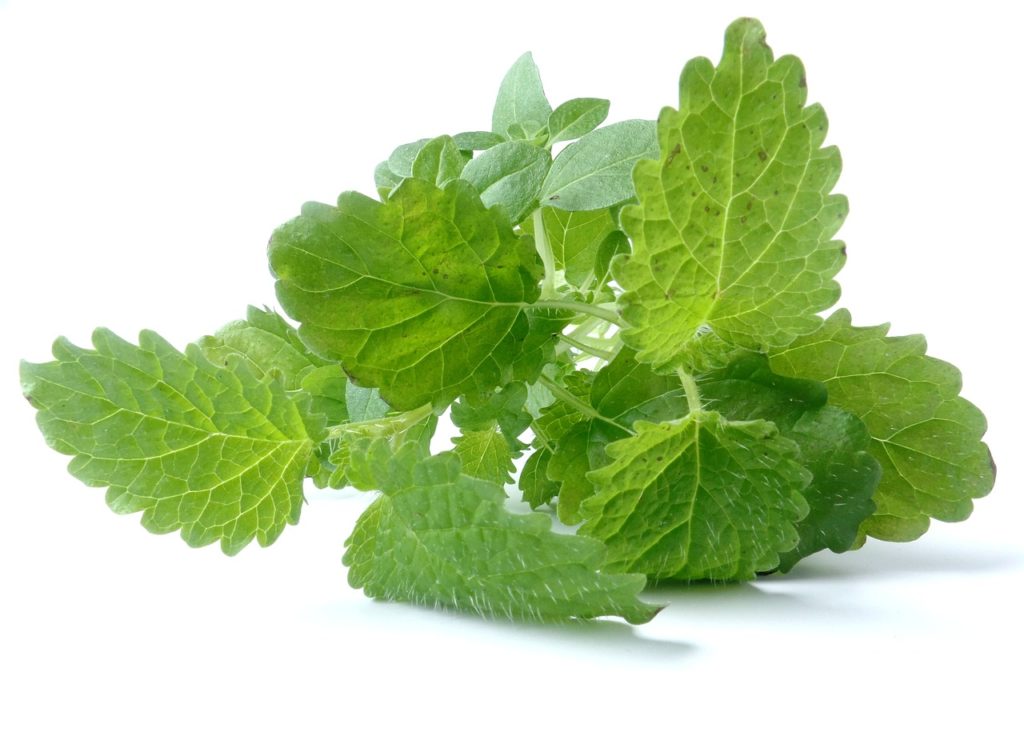
If you have Salicylate Intolerance, you’re going to want to avoid taking Kauai Farmacy (and other) herbs internally.
Most herbs are naturally high in salicylic acid and may aggravate symptoms.
There is an option for you, though! If you have a salicylate sensitivity, you can use the Hydrosols in the air instead.
You can inhale the essential oils and get the benefit that way. Rather than taking these herbs internally or applying to the skin.
A couple of other points…
If you are pregnant or breastfeeding:
The safety of consuming Tulsi while pregnant or breastfeeding hasn’t been studied yet, so it’s best to avoid it (at least in high amounts) until more is known about it.
Animal studies also show that Tulsi (seed oil) could possibly increase the effects of benzodiazepines on the immune system. So, if you’re on a benzodiazepine, be careful with Tulsi seed oil supplements.
Tulsi tea, though, is made from the leaves. And it’s going to be much more diluted than Tulsi supplements, though. So it’s generally ok with 1-2 cups/day.
Also, if you have very low cortisol, you might not feel well with Tulsi supplements. This is because concentrated amounts of Tulsi can lower cortisol.
You may do better with the tea or hydrosol instead. Because it’s too low of a concentration to likely lower cortisol.
If you don’t tolerate any herbs. And you react to the smell of herbs, then you may need to work on your nervous system before trying herbs again.
I do recommend trying all new things slowly. So, if Tulsi or Ginger or the others are new to you, try a small amount first. And then slowly increase, listening to your body.
Of course, if you’re on medications, it’s a good idea to check in with your doctor or health practitioner before starting new things to make sure there aren’t any negative interactions.
====> Check out Kauai Farmacy
Histamine/Mast Cell Supporting Products Here
And get 15% off with code Mastcell360
*Some links in this website are affiliate links, which means Mast Cell 360 may make a very small commission if you purchase through the link. It never costs you any more to purchase through the links, and we try to find the best deals we can. We only recommend products that we love and use personally or use in the Mast Cell 360 practice. Any commissions help support the newsletter, website, and ongoing research so Mast Cell 360 can continue to offer you free tips, recipes, and info. Thank you for your support!
References on Tulsi and Fresh Herbs for Mast Cell Activation Syndrome or Histamine Intolerance
Choudhary, GP. Mast cell stabilizing activity of Ocimum sanctum leaves. International Journal of Pharma and Bio Sciences. January 2010. 1(2).
Cohen MM. Tulsi – Ocimum sanctum: A herb for all reasons. J Ayurveda Integr Med. 2014;5(4):251-259. doi:10.4103/0975-9476.146554
Kath, R., Gupta, R. Comparison Of Efficacy Of Ocimum Sanctum Against Gastric And Duodenal Ulcers In Animals. The Internet Journal of Gastroenterology. 2012 Volume 11 Number 1. Internet Scientific Publications
Kauai Farmacy. Tulsi plant’s medicinal uses and health benefits
Kauai Farmacy. Tulsi – The Elixir of Life
Pattanayak P, Behera P, Das D, Panda SK. Ocimum sanctum Linn. A reservoir plant for therapeutic applications: An overview. Pharmacogn Rev. 2010;4(7):95-105. doi:10.4103/0973-7847.65323
Sridevi G, Gopkumar P, Ashok S, Shastry C. Pharmacological Basis For Antianaphylactic, Antihistaminic And Mast Cell Stabilization Activity Of Ocimum Sanctum. The Internet Journal of Pharmacology. 2008 Volume 7 Number 1. Retrieved from: http://ispub.com/IJPHARM/7/1/6038
Mediratta PK, Sharma KK, Singh S. Evaluation of immunomodulatory potential of Ocimum sanctum seed oil and its possible mechanism of action. J Ethnopharmacol. 2002;80(1):15-20. doi:10.1016/s0378-8741(01)00373-7
Nweze, E.I., Eze, E.E. Justification for the use of Ocimum gratissimum L in herbal medicine and its interaction with disc antibiotics. BMC Complement Altern Med 9, 37 (2009). https://doi.org/10.1186/1472-6882-9-37
Panda S, Kar A. Ocimum sanctum leaf extract in the regulation of thyroid function in the male mouse. Pharmacol Res. 1998;38(2):107-110. doi:10.1006/phrs.1998.0338
Prakash A, Ebenezer AJ, Vasanth S, Nagarajan G, & Thangam-Elden B. (2017) Effect of Ocimum tenuiflorum Linn Extract on Histamine Mediated Allergic Inflammation in Human Mast Cells, Journal of Biologically Active Products from Nature, 7:1, 10-17, DOI: 10.1080/22311866.2016.1275983
Sankhalkar S, Vernekar V. Quantitative and Qualitative Analysis of Phenolic and Flavonoid Content in Moringa oleifera Lam and Ocimum tenuiflorum L. Pharmacognosy Res. 2016;8(1):16-21. doi:10.4103/0974-8490.171095
Sistani Karampour N, Arzi A, Rezaie A, Pashmforoosh M, Kordi F. Gastroprotective Effect of Zingerone on Ethanol-Induced Gastric Ulcers in Rats. Medicina (Kaunas). 2019;55(3):64. Published 2019 Mar 11. doi:10.3390/medicina55030064

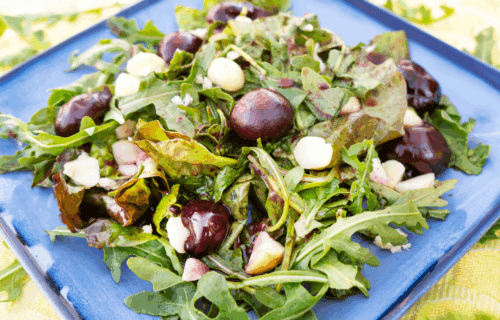
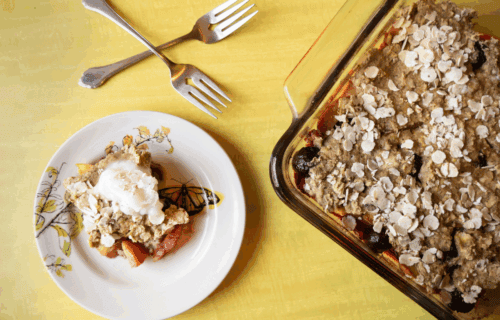

Tulsi is pretty amazing. Before I knew I was dealing with mold toxicty, my cortisol started going high. First time I used holy basil and seriphos to lower it. Second time reacted to seriphos and used relora jujube and holy basil. Little did I know,the cortisol was an indication of mold toxicty.